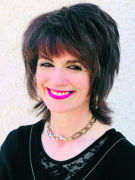Of all the displays of unity during coronavirus, perhaps the most poignant and emotive has been the nation’s round of applause each week for the NHS.
Yet even as the tribute resounds across urban streets and rural villages, there is a hollow echo in its wake that is troubling.
We stand, as shoulder to shoulder as social distancing permits, in tribute to those who, in normal times, we underpay and undervalue, for working in hospitals that we under-resource then criticise for under-performing.
So, please ignore our previous and probably future, ingratitude and inertia because now you’re all risking your lives – well, thanks guys.
The veneer of hypocrisy that is impossible to ignore in our weekly applause is replicated in so many aspects of our response to this crisis, most notably our ideas of equality and pulling together in times of trouble.
We have – just about – avoided revisiting tales of how the spirit of Old Blighty won the war with the spirit of Churchill at the helm, but there were shades of it in Dominic Raab’s reassurance to the nation that Boris would pull through because he was “a fighter”.
What? He thinks strength of character acts like a vaccine? He thinks those who have died of coronavirus just gave up and threw in the towel?
The Hans Christian Anderson version of current events is that we stand equal and united in the face of a common foe that will be defeated by the unity we display – because that is supposedly this nation’s strength.
But the truth is that Boris thankfully recovered because he has been given early, first class, preferential treatment in a system that is groaning at the seams. He was assured of an ICU bed and a ventilator should he need it.
He will return to a clean environment with good food and the money to make himself comfortable. This myth of coronavirus equality results in those who suffer most being helped least.
The prevalence of the virus among prime ministers and princes, of Hollywood royalty, of the world’s movers and shakers in other words, is as much an indication of their greater affluence and mobility as their common-man status.
Thank God for Newsnight’s Emily Maitlis, who, in her introduction to a piece on coronavirus last week, debunked the notion that it is the great leveller.
Make no mistake, NHS staff and supermarket workers and carers and people who do the low-paid jobs that can’t be done from a nice home with a garden, are in it more than the rest of us. And ironically, while we still function without many of the powerful, they are the ones society can’t manage without.
They won’t, like Prince Charles, get a test as soon as they become ill. Not even doctors get those readily – or face masks either.
And they certainly won’t have a second home to retreat to. How exactly did the ill Prince Charles move from London to Scotland with so little criticism when the rest of us, even the symptom-free, can’t visit family? The chief medical officer lost her job for visiting her second home. Is a prince less contagious than the rest of us?
There are natural inequalities with this virus that we don’t yet understand. Older people and men are more susceptible – particularly middle aged and overweight ones.
It is also worrying that the first eight doctors who died in Britain had ethnic minority backgrounds. One study of patients in England, Wales and Northern Ireland showed the death rate among black and ethnic minorities was double their rate in the population. In Chicago, African-Americans make up 30% of the population but account for 70% of deaths. It is a similar situation in Michigan and Louisiana.
Is that genetic – or because ethnic minorities are often among society’s most disadvantaged and therefore most susceptible? We don’t yet know. But we do know that any natural inequalities in this virus are being exacerbated by unnatural ones behind the veneer of “all-in-it-together”. To add insult to injury, NHS workers are now being threatened with disciplinary action if they talk to the media. Nobody in a democracy should be denied a voice when it comes to truth. Silence means secrets.
In any case, if the state wants to play nanny and dose us all with syrup, frankly they should have taken better care at the start of this rather than simply blaming baby for bawling now.
Appreciation is a lovely thing. But next time we applaud, perhaps we should also think of the narrative that was spun round immigration pre-coronavirus.
The truth is that more than 40% of NHS doctors are foreign. Far from draining the resources of this country, immigrants have supported and looked after us – and then, by the way, had to pay for the use of the very system they shore up.
Let’s get beneath the pretence, acknowledge the past underfunding, discrimination and ingratitude and change our ways. Perhaps included in the “thank you” of our weekly applause, a “sorry” would also be appropriate.











